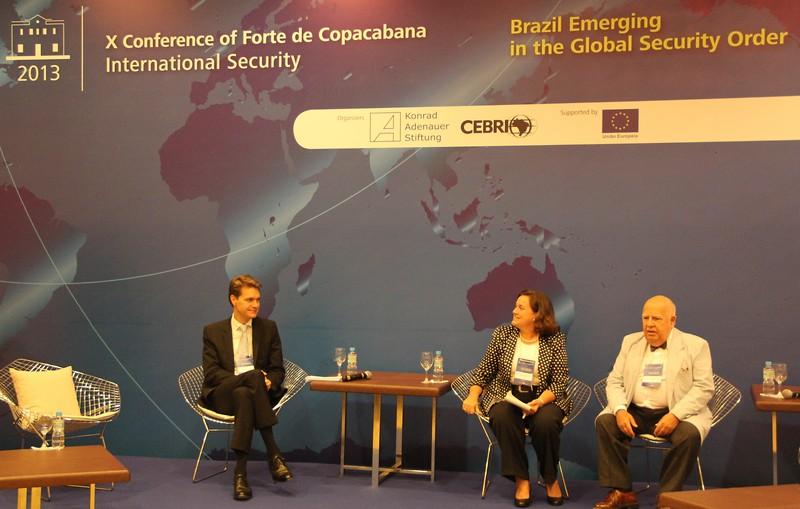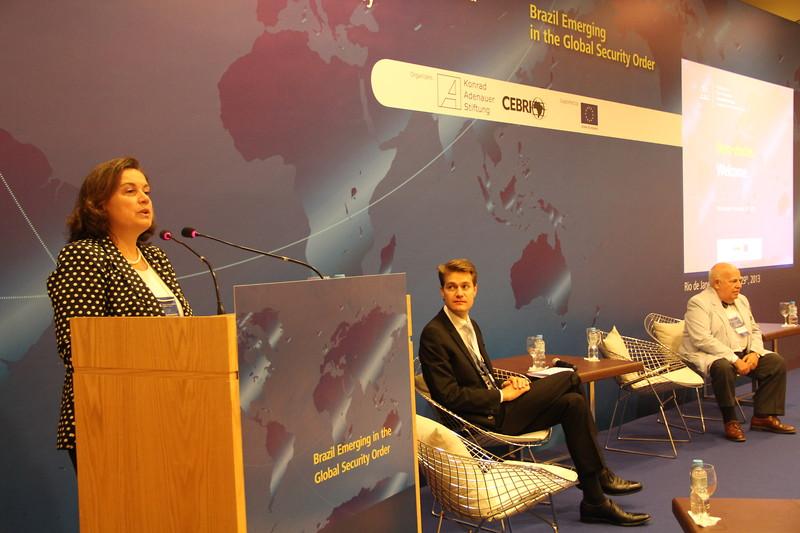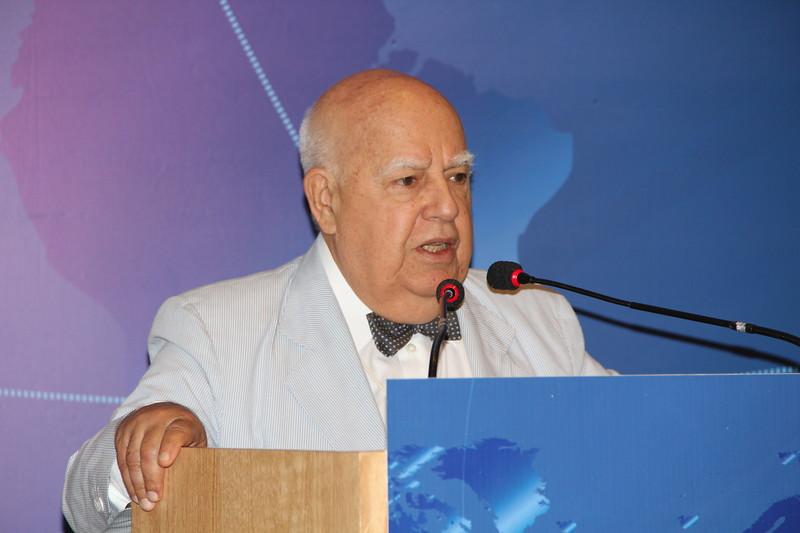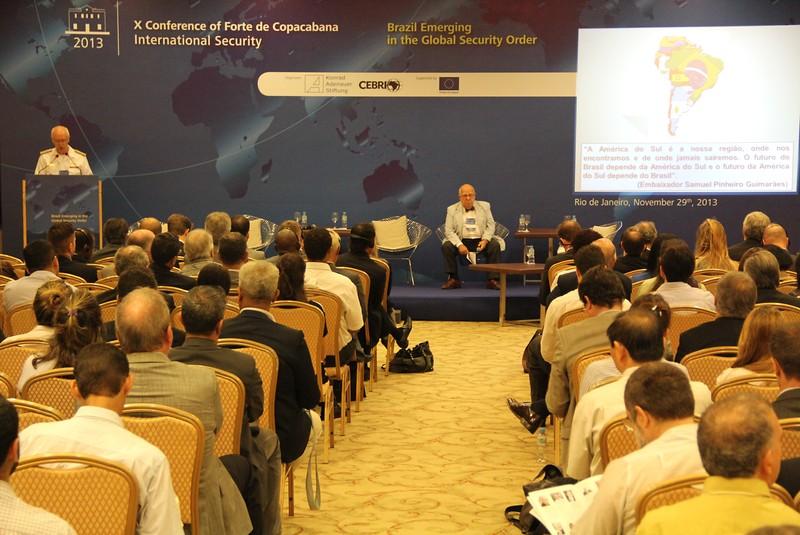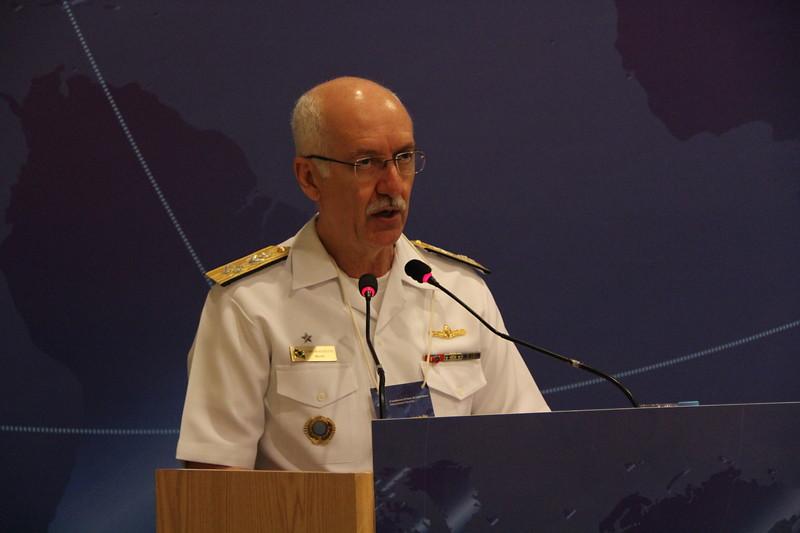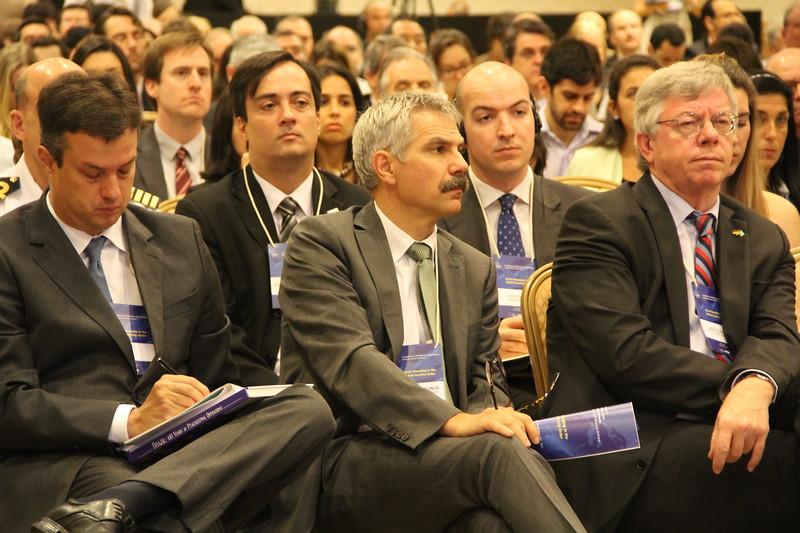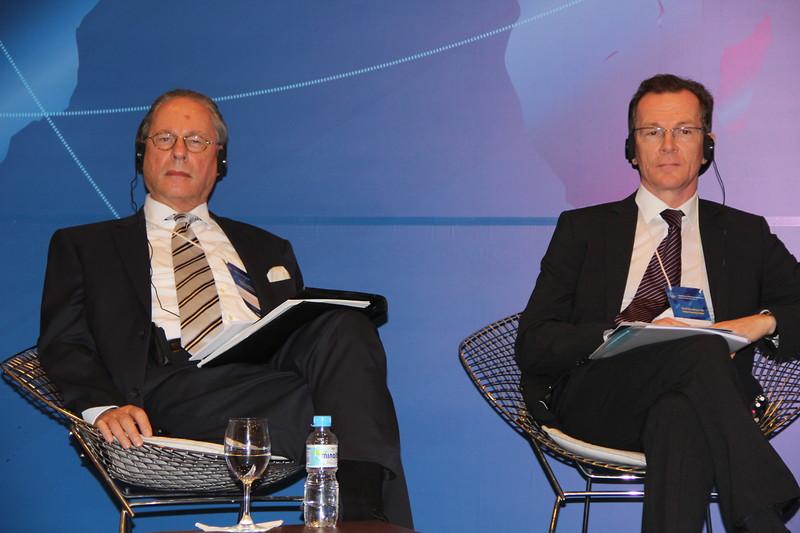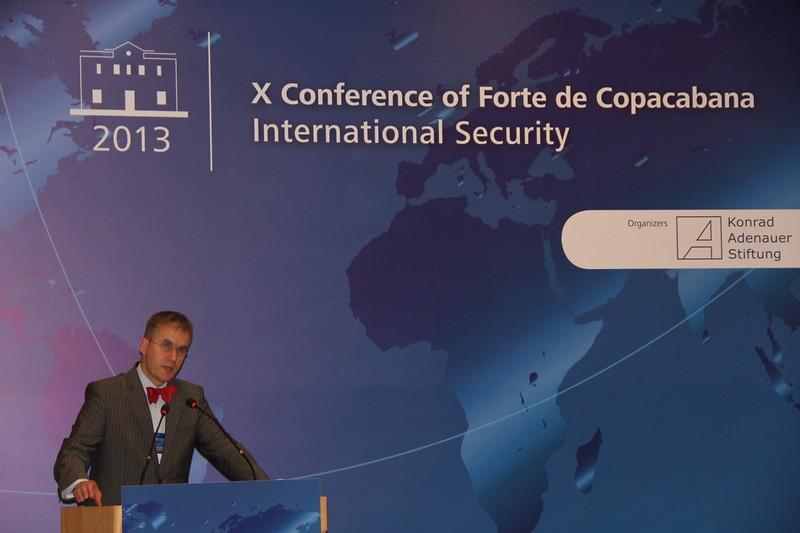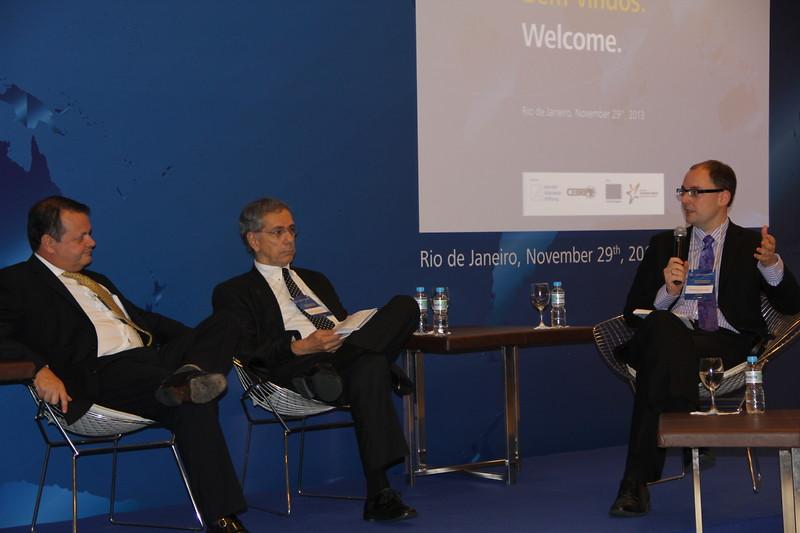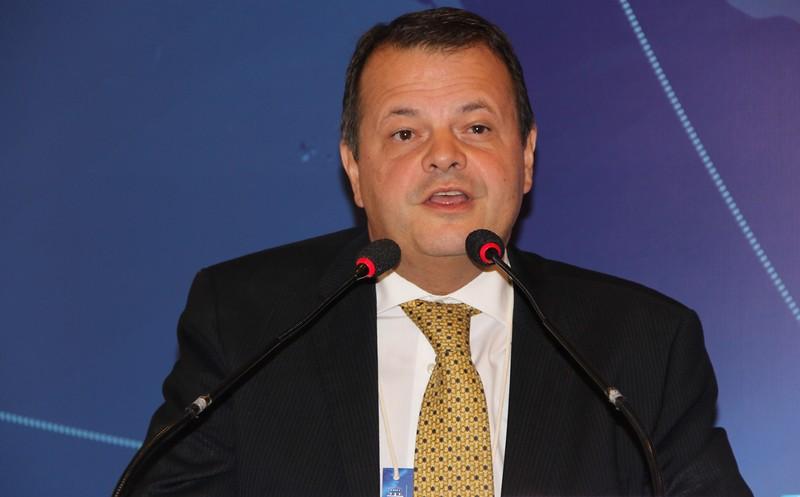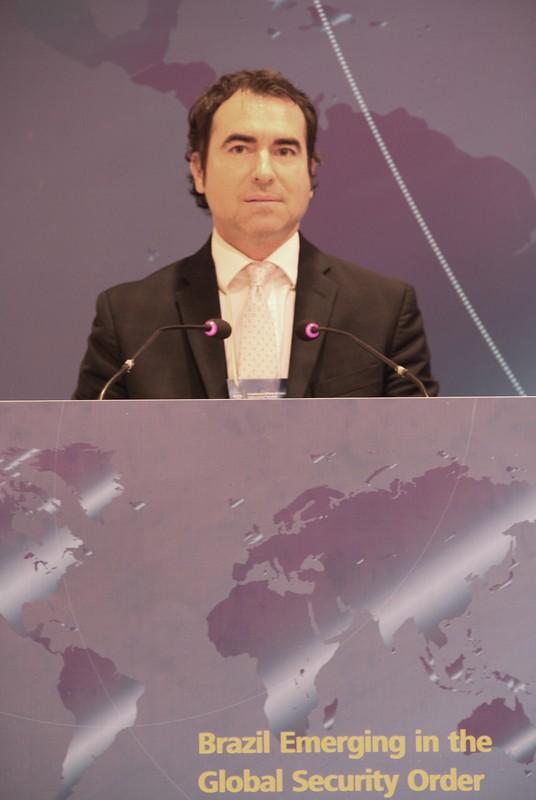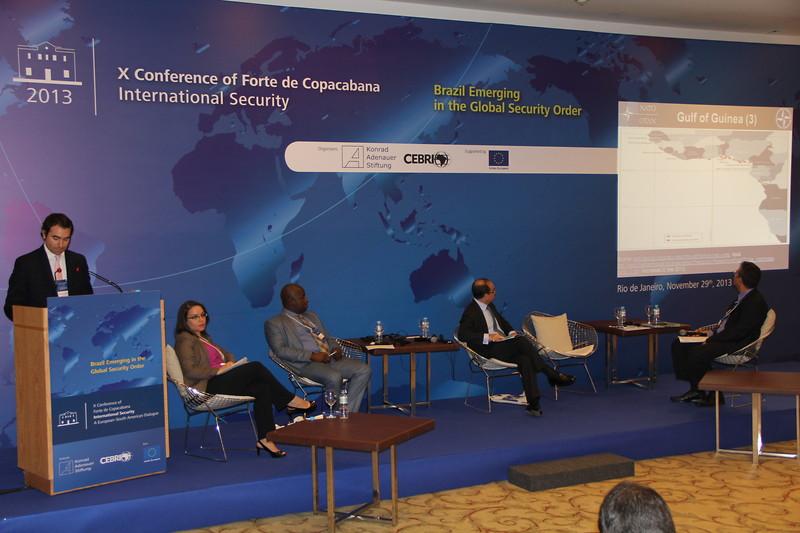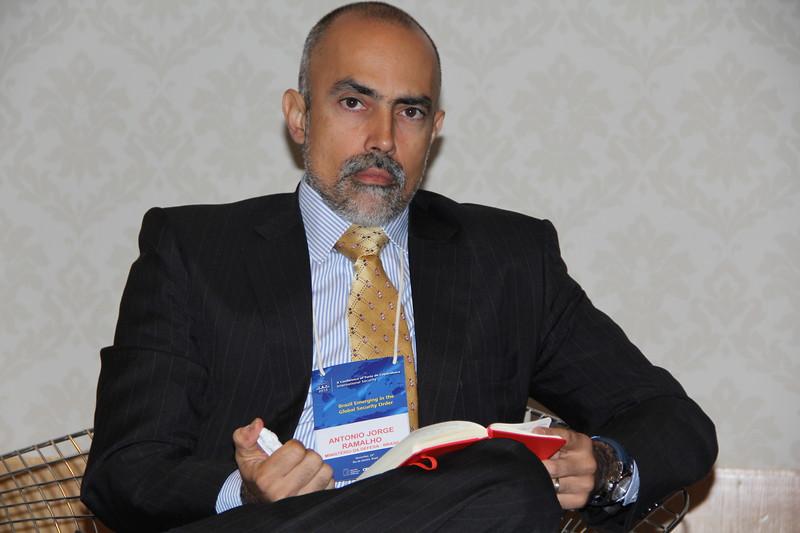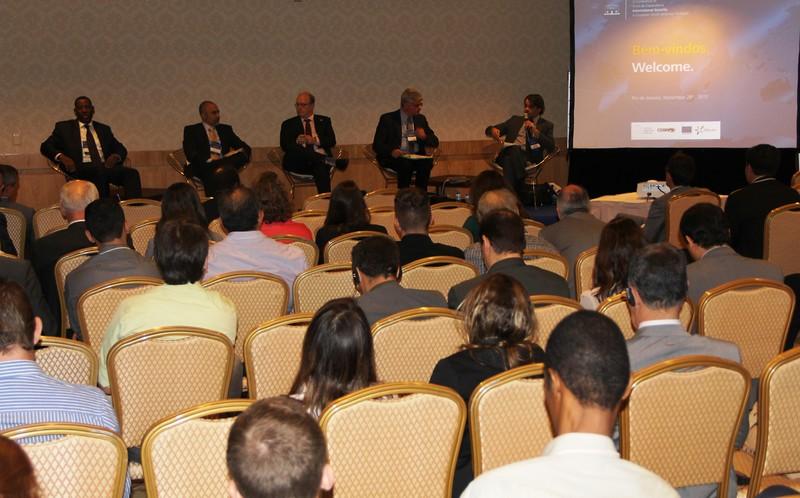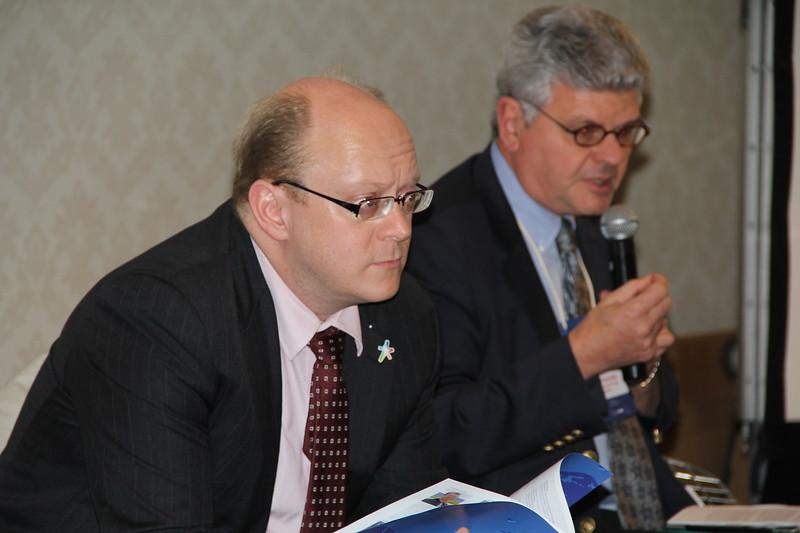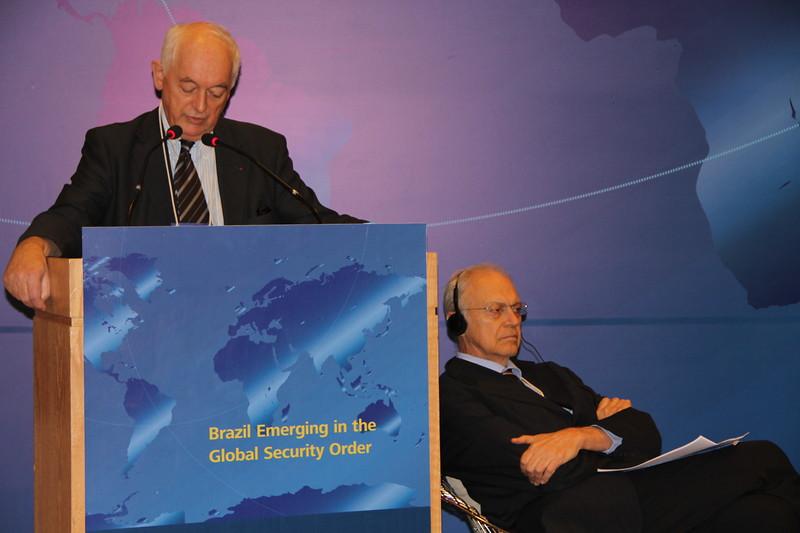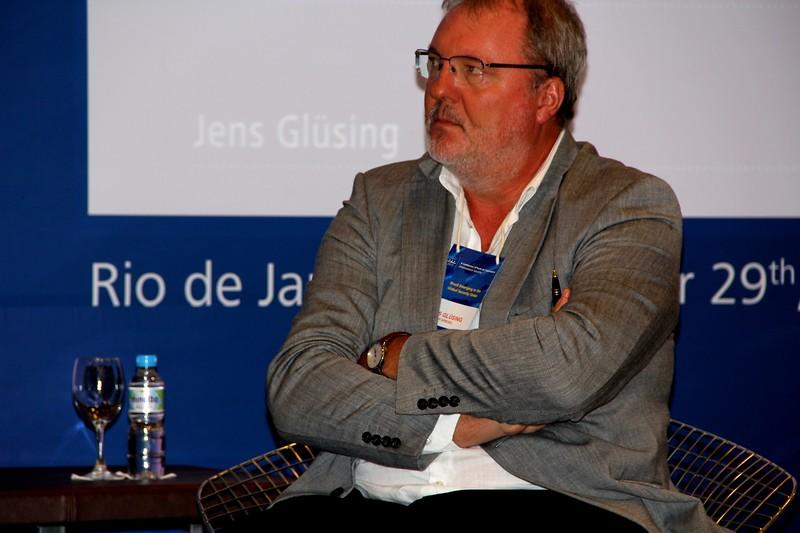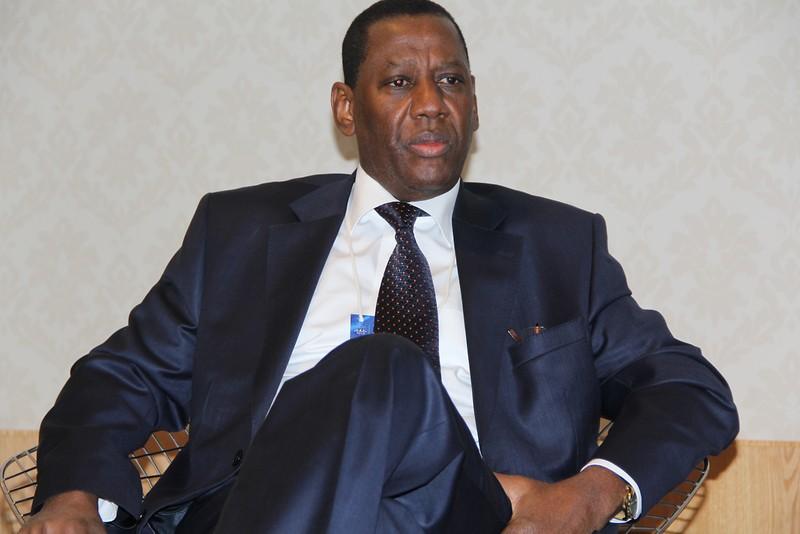Event reports
The open conference was outstandingly well attended. In fact, more people then expected arrived for the opening, which in turn led to some logistical challenges. However, the conference did not suffer in any way because of these organizational challenges, in contrary, the speakers were well pleased to be able to speak in a full house.
The conference was inaugurated by brief words of welcome by the hosts, represented by Felix Dane from the Konrad Adenauer Foundation (KAS), Ambassador Marcos de Azambuja from the Brazilian Center for International Relations (CEBRI) and Ambassador Ana Paula Zacarias from the Delegation of the European Union to Brazil.
The words of reception were followed by the keynote addresses on “the Evolving Global Security Order”. The speakers were Admiral Carlos Augusto de Sousa, Head of Strategic Affairs of the Joint Staff of the Brazilian Armed Forces, and Ulrich Schlie, Director General for Security and Defence Policy of the German Federal Ministry of Defence. Admiral Carlos Augusto provided an overview of the Brazilian international military commitments and highlighted the many Euro-Brazilian military initiatives, which he described as important endeavors with the aim of fostering deeper cooperation. In his speech, Mr Schlie shed light on the relationship between the EU and NATO, and illustrated how joint operations take place within the UN Framework. Following, Mr Schlie reaffirmed that future challenges, such as energy security, terrorism or the rise of the powers, must be managed on an international level, through cooperation and concerted action by all responsible members of the international community.
Panel one treated the topic of “Brazilian and European Perspectives on the Global Security Order”. The panelists agreed that the protection of natural resources and the fight against terrorism remain common international priorities. Furthermore, cyber security and drug trafficking were mentioned as areas that need careful attention, both of which are being addressed by a set of bi- and multilateral treaties. On how to address these challenges there were some divergences. Some cautioned the use of military means, and voiced their concerns that by the use of drones the military option could potentially escalate, while others said that in the face of real challenges there must be real solutions. Common ground was found through the notion that security and development must be part of any possible equation in providing a path towards the well being of all interested parties.
Panel two and three took place simultaneously in two separate conference rooms. Panel two was titled “Security and Cooperation in the South Atlantic”. The panelists focused on matters related to energy security and political considerations. They were in agreement that as for now, there are few risks for conflict in the Southern Atlantic region. However, some panelists pointed out this peaceful outlook could change due to exogenous reasons and that as such it is important to intensify cooperation between all states of the region. Disagreement swayed on whether NATO or even the BRICS should be part of any given security system for the region. Proponents of such an extra regional option pointed out that NATO is the only military alliance with global reach, and that as such the western alliance receives requests by the UN and regional organization upon which decisions and actions are based. The other side countered by arguing that external involvement could lead to intensified hostilities between partners as the balance of power in the region is altered. The panel condluded by reaffirming that the importance of the South Atlantic will continue to rise and that dialogue and the exchange of viewpoints will remain imperative.
Panel three was about “The Imperatives and Hazards of Interventions: Libya, Mali and Syria”. At the outset, the panelists focused much of the debate on what the UN system, international law and international norms in general have to say on the question of interventions, as well as the capacities of states to act should so be necessary and called for. Some panelists reiterated the importance of non intervention and sovereignty for the very core workings of the Westphalian international system. When focusing on the case of Mali, however, the ambassador of that country pointed out that there are cases in which the international community must loose sight of abstract concepts, and in consequence must face the risks and hazards involved in securing integrity and well being of threatened members of the international community, and that such may involve force. On that note, he thanked France for what having saved his country from falling into the hands of terrorists. Consensus was found around the notion that there can be no fixed, Manichean mechanisms which regulate the complex inter state relations, and that given solutions must be found for given problems.
The last panel of the day was on “Security through Development: Shared Interests, Mutual Cooperation”. The panelists agreed on the importance to understand the problem of security through the challenge of providing development for all members of the international community. It was pointed out that empirical research would show a clear link between degree of development, popular inclusion in political processes and conflicts. Furthermore, the panelists agreed that there is no “far away” in terms of conflicts, and that as such security challenges in one region can affect other states in that region and beyond. As a consequence, Europe and Brazil are both actively promoting development in Latin America and Africa, though both use differing strategies. Brazil employs what is calls the so called South-South approach, while Europe has for some time now incorporated in any potential military planning the imperative notion of rebuilding and development. All panelists agreed that the interests of Europe and Brazil are in basic terms similar, and that there would be much space for future synergies.
After a day of high level intellectual exchanges, the conference was closed by the hosts, who thanked the numerous guests who had attended the conference. Moreover, they called upon a continued dialogue and cooperation between Brazil and Europe, two partners who sometimes differ in views and opinions, but who also have ample common ground for cooperation and who shared much of history and culture.
About this series
The Konrad-Adenauer-Stiftung, its educational institutions, centres and foreign offices, offer several thousand events on various subjects each year. We provide up to date and exclusive reports on selected conferences, events and symposia at www.kas.de. In addition to a summary of the contents, you can also find additional material such as pictures, speeches, videos or audio clips.



